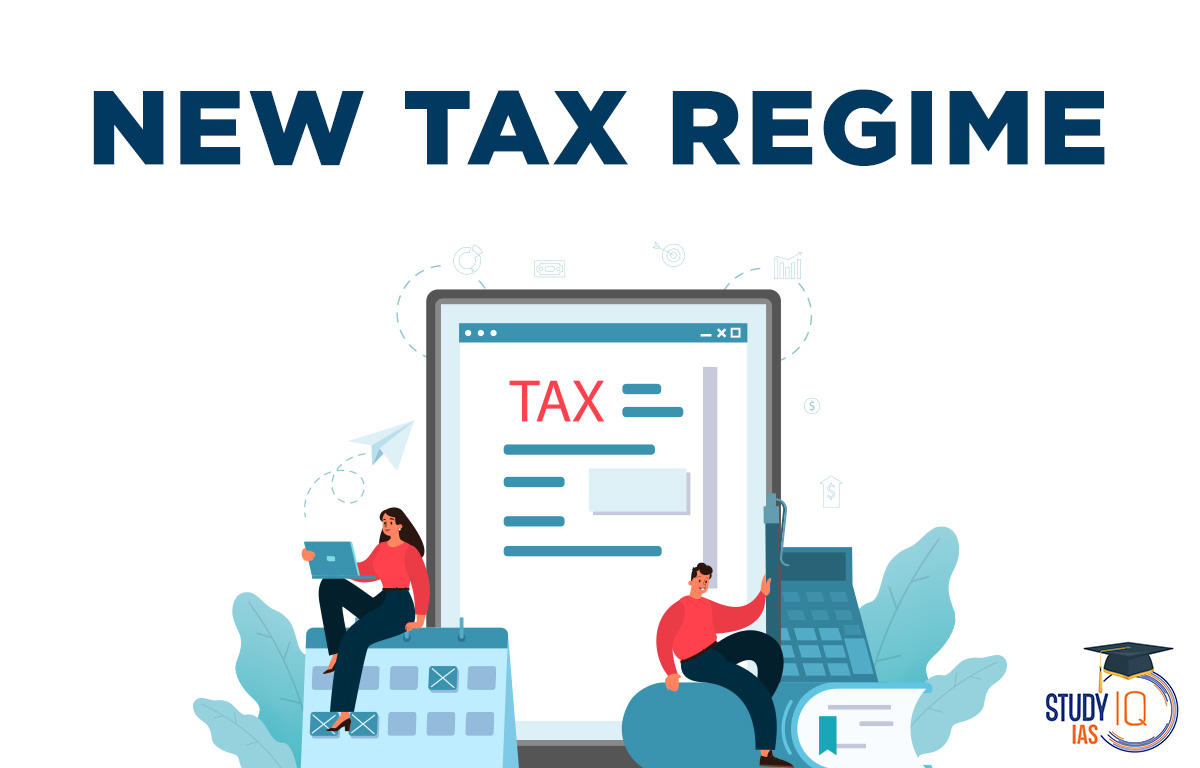Context: Starting April 1, 2023, the Finance Ministry will be bringing in some significant changes in the income tax rules under the new tax regime.
What were the major changes announced under the new tax regime?
- New income tax regime will be default regime:
- Default regime: From April 1, 2023, the new income tax regime will act as the default tax regime. Taxpayers will be given a choice to choose their regime, in case they don’t, the income tax will be calculated as per the new tax regime.
- Simplified tax regime: The new tax regime, which was introduced in the 2020 Budget, is known as the ‘Simplified Tax regime,’ and offers reduced tax rates if the taxpayer is ready to forego some deductions and exemptions during income tax calculations.
- Changes in Income Tax slabs:

- Tax rebate
- From April 1, 2023, the tax rebate under Section 87A of the Income tax Act, 1961 will be hiked to taxable income level of Rs 7 lakh from Rs 5 lakh.
- Meaning: Individuals with an income less than ₹7 lakhs do not need to make any investments to claim exemptions, and their entire income will be tax-free regardless of the amount of investment made.
- Impact: This gives middle-class individuals more spending power, as they can use their entire income without worrying about investing in schemes to claim exemptions.
- Reduction in surcharge for HNIs:
- It was proposed to reduce the highest surcharge rate from 37 per cent to 25 per cent High Net Worth Individuals who would choose the new tax regime.
- Currently, individuals are subject to graded surcharge rates which range up to 37 per cent in case the income of the taxpayer exceeds Rs 5 crore.
- Taxation of MLDs
- From April 1, 2023, investment in Market Linked Debentures (MLDs) will be short-term capital assets.
- Market-linked debentures (MLDs) are non-convertible in nature where the returns are not fixed but linked to the market.
- No LTCG tax benefit on debt MFs
- From April 1, 2023, investors putting their money in debt mutual funds should note that the amount will be taxed as short-term capital gains.
- The long-term capital gains (LTCG) provision and 20 per cent tax with indexation benefit will not be available on debt MFs. The existing investments will continue to get this benefit.
- Life and Term Insurance policies
- From April 1, 2023, proceeds from life insurance premiums over the annual premium of Rs 5 lakh would be taxed.
- This will not impact the tax exemption provided to the amount received on the death of the insured person.
- Short-term capital gains are those that an individual earns when they sell an asset within 36 months (3 years) from the date on which they acquired the asset.
- Long-term Capital Gains are those that an individual earns when they sell an asset after 36 months (3 years) from the date on which they acquired the asset.
- A debt fund is a Mutual Fund scheme that invests in fixed income instruments, such as Corporate and Government Bonds, corporate debt securities, and money market instruments etc.
- Changes in tax law for startups
- The Finance Bill, 2023 was also unveiled which has proposed to amend Section 56(2) VII B of the Income Tax Act.
- The provision states that when an unlisted company, such as start-ups receive equity investment for the issue of shares exceeding their face value, it will be considered income for the start-up and be subject to income tax under the heading “Income from other Sources”.
- Section 56(2) VII B of the Income Tax Act, colloquially known as the ‘angel tax’ was first introduced in 2012 to deter the generation and use of unaccounted money through the subscription of shares of a closely held company at a value that is higher than the fair market value of the firm’s shares.


 Editorial of the day (18th Apr): Great I...
Editorial of the day (18th Apr): Great I...
 Expansion of Universe, Speed, Reasons, I...
Expansion of Universe, Speed, Reasons, I...
 Current Affairs 18th April 2024 for UPSC...
Current Affairs 18th April 2024 for UPSC...

















